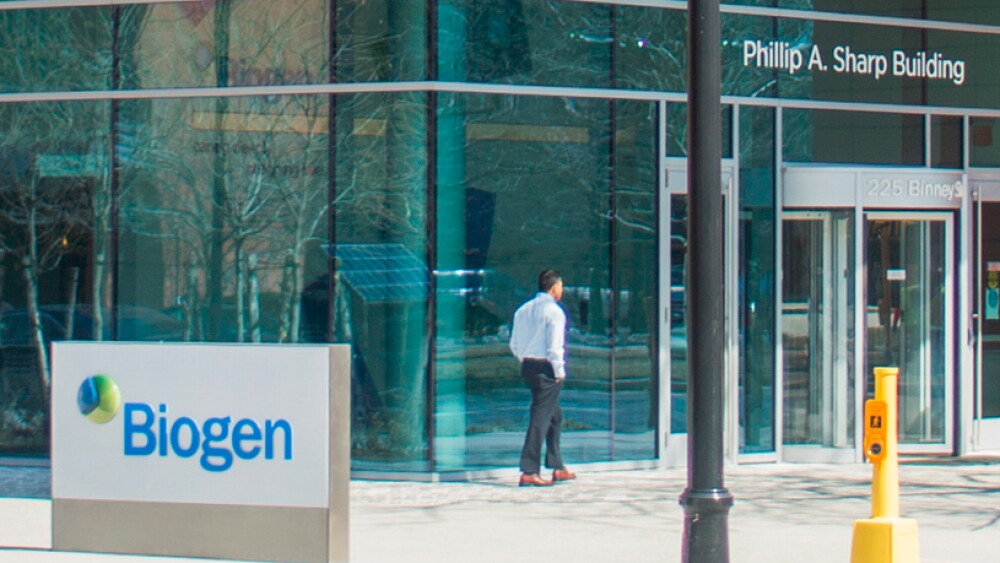March 22, 2017
By Mark Terry, BioSpace.com Breaking News Staff
The U.S. Patent Trial and Appeal Board rejected a patent suit against Cambridge, Mass.-based Biogen leveled by Texas hedge fund manager Kyle Bass.
Had the ruling gone the other way, it would likely have damaged Biogen’s revenue stream from its oral multiple sclerosis blockbuster drug Tecfidera. Tecfidera brought in almost $4 billion in sales in 2016. The decision will likely fend off generic competitors by four or five years, according to Salim Syed, an analyst with Mizuho.
The patent challenge focused on the 514 patent, which describes a way of dosing MS patients with 480 milligrams per day of a list of specific fumarates. Biogen is not the only target of Bass, who has filed several lawsuits against companies “that he believed were being improperly extended based on dosing schedules, preventing cheaper drugs from hitting the market,” according to StreetInsider.
In a note to investors Syed wrote, “Biogen just won the IPR litigation against Kyle Bass. This allows Biogen’s ‘514 2028 dosing patent to stay. Consensus was modeling generic Tecfidera coming online in the U.S. about 2023/24. The extended patent life has about a $10 upward movement on a DCF basis according to our math (assuming Tecfidera can get marketed in the U.S. until 2028). Bear in mind this decision can be appealed by Bass and that process can take 12-18 months, so investors may want to risk adjust this number.”
Biogen already settled part of an ongoing patent case with Denmark’s Forward Pharma A/S in January. It agreed to pay $1.2 billion to license Forward’s intellectual property that was part of an active ingredient in Tecfidera. The licensing deal gave Biogen an irrevocable license to Forward’s intellectual property. There is a pending decision on whether Biogen will pay Forward royalties on net sales of Biogen products for MS that are covered by a Forward patent and that have dimethyl fumarate (DMF) as an active pharmaceutical ingredient.
Biogen (BIIB) popped a little bit at the news, currently trading for $275.79.
Two analyst firms, Leerink and Morgan Stanley, recently downgraded Biogen. The primary arguments for both was that there were no near-term catalysts. The company’s most recent approval, Spinraza, for spinal muscular atrophy (SMA), hasn’t captured the market as fast as expected, and the company’s Alzheimer’s drug, aducanumab, is at least two years from approval—if approval is in the cards, which is always problematic when evaluating Alzheimer’s drugs.
Biogen has long been marked as a possible acquisition target—at least when investors aren’t pushing it to buy something. The company has a market cap over $67 billion, which makes it an awfully expensive company for most acquirers. Potential buyers would be Allergan or Merck . It’s Alzheimer’s pipeline is high-risk, but its MS franchise still rakes in billions of dollars annually, and the patent decision, assuming there’s no appeal, would allow for a sale with fewer strings attached.
Investors want Biogen to buy something to bolster revenues in the face of MS competition and patent challenges, as well as a lack of near-term catalysts. The company’s new chief executive officer, Michel Vounatsos, recently spoke at the Cowen & Company Annual Health Care Conference and suggested that, according to The Motley Fool, “more activity has gone on behind the scenes than meets the eye. He said that Biogen does want to bolster its pipeline with additional early-stage assets.”
One possible acquisition is AveXis , which is working to develop a gene therapy treatment for SMA.





